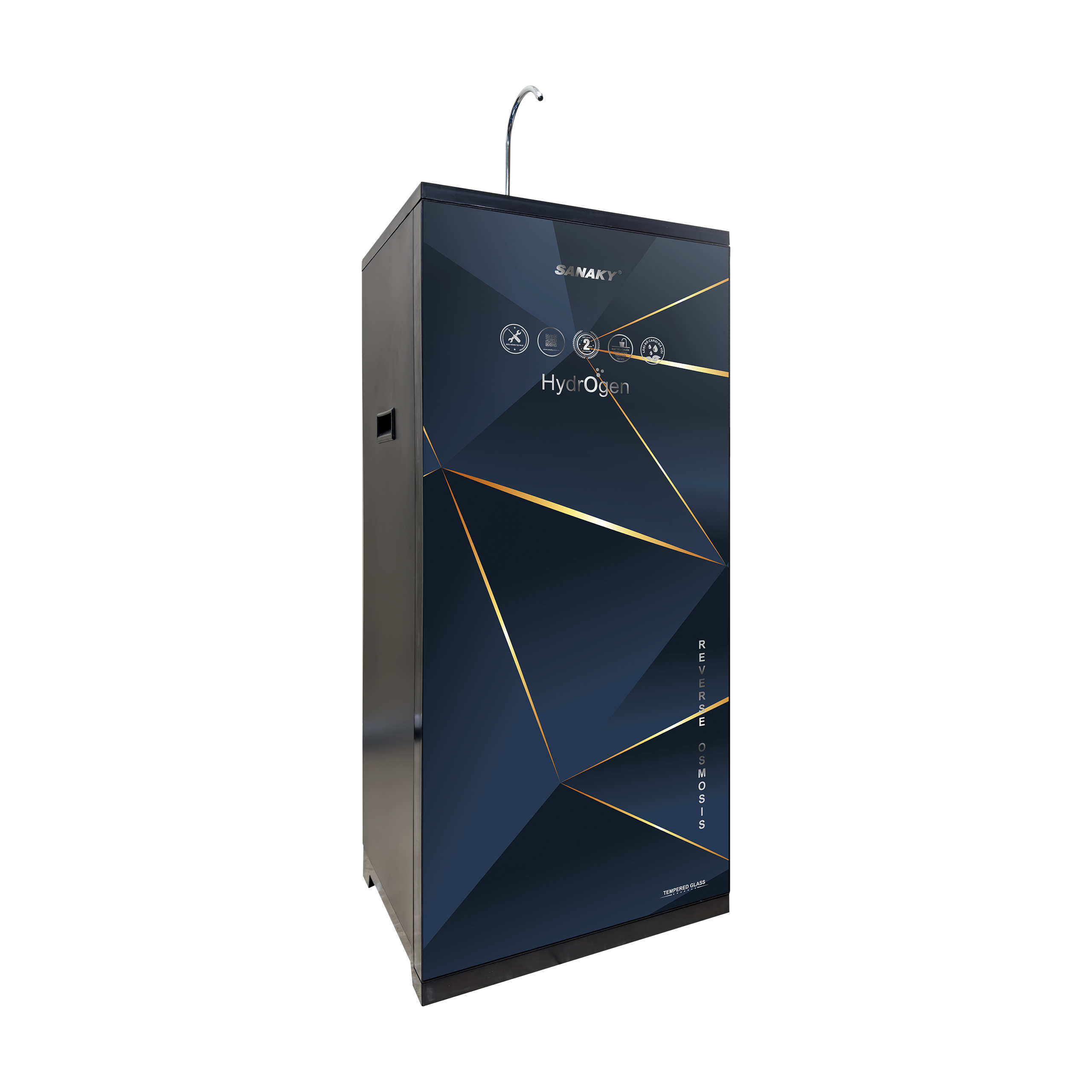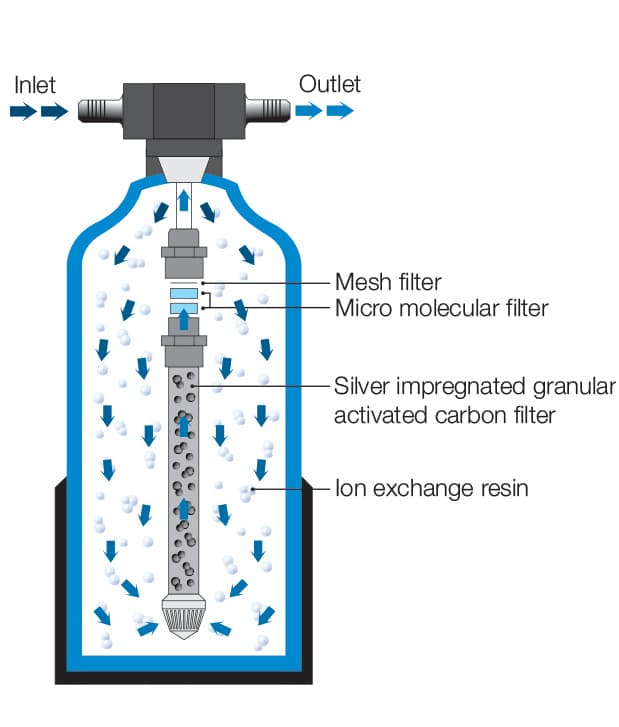Access to clean and safe drinking water is fundamental to human health and well-being. Yet, in many parts of the world, water contamination remains a significant challenge, posing serious risks to public health. In addressing this issue, Reverse Osmosis (RO) water purifiers have emerged as a transformative technology, offering a reliable solution to purify water and make it safe for consumption. This essay explores the evolution, functionality, benefits, and impact of RO water purifiers in ensuring access to clean drinking water for all.
1. What is RO water purifiers?

RO water purifiers, or Reverse Osmosis water purifiers, are filtration systems that use a semi-permeable membrane to remove ions, molecules, and larger particles from drinking water. The process involves applying pressure to the water, forcing it through the membrane and leaving contaminants behind. This technology is highly effective at removing a wide range of impurities, including dissolved salts, heavy metals, pesticides, and microbial contaminants, resulting in purified water that is safe for drinking.
RO water purifiers are popular for household use, especially in areas where the water supply is not reliably clean or contains high levels of contaminants. They provide an additional layer of protection beyond traditional filtration methods like carbon filters, ensuring that the water you drink is of the highest quality.
When choosing an RO water purifier, it's essential to consider factors such as the quality of the membrane, the system's capacity, and any additional features like UV sterilization or mineralization. Regular maintenance, including replacing filters and sanitizing the system, is also crucial to ensure optimal performance and water quality over time.
2. What kind of RO water purifier?
The kind of RO water purifier you choose depends on various factors such as:
- Water Quality: If your water source contains high levels of dissolved solids, heavy metals, or other contaminants, you might need a more advanced RO system with multiple stages of filtration and higher capacity membranes.
- Water Usage: Consider the amount of water your household consumes daily. Larger households or those with higher water usage may require a high-capacity RO system with larger storage tanks.
- Budget: RO water purifiers come in a range of prices depending on their features and quality. Determine your budget and look for a system that offers the best value for your money without compromising on water quality.
- Additional Features: Some RO systems come with additional features such as UV sterilization, mineralization, or pH balancing. Decide whether these features are necessary based on your water quality and personal preferences.
- Brand and Warranty: Choose a reputable brand with a good track record for quality and reliability. Look for a system that comes with a warranty to cover any potential defects or malfunctions.
Ultimately, the best kind of RO water purifier for you is one that meets your specific needs in terms of water quality, capacity, features, and budget. It's essential to research and compare different models before making a decision to ensure you find the right system for your home.
3. Why do we need to use RO water purifiers?
RO (ReverseOsmosis) water purifiersare used for many purposes:
Removal of Contaminants:RO systems effectivelyremove many contaminants fromwater, including dissolvedsolids, heavy metalssuch as lead and arsenic, chemicals, pesticides, bacteria,viruses, and othercreatures.This purification method makes drinking water safe and free ofharmful substances.
Improves Taste and Odor: RO filterscan also improvethe taste, odor,and appearance ofwater by removingchlorine, impurities, and othercontaminantsthat can affectits quality.
Health Benefits: Drinkingclean water from an RO system can contribute to overall healthby reducing the amount of contaminants that maybe present intap or well water.
Prevention of Waterborne Diseases: ROpurification helps prevent waterbornediseases caused bybacteria, viruses, andparasites that cancontaminate untreated water sources.
Peace of Mind: Pure RO water gives youand your familypeace of mind knowing you are using pure, high-quality water.
While RO systemsare not necessary for everyone,they are instrumental in areas where water quality is poor or supplies are unreliable. Additionally, people withcompromised immune systemsor certainhealth conditions may chooseto use RO water for added safety and peace of mind.

RO water purifiers are renowned for their convenience and ease of use. Unlike traditional methods of water purification, such as boiling or using chlorine tablets, RO systems require minimal effort from the user. With the installation of an RO water purifier, households can access clean and safe drinking water at the turn of a tap, eliminating the need for storage or handling of bulky water containers. The environmental impact of RO water purifiers cannot be overstated. By providing an alternative to bottled water, RO systems contribute to reducing plastic waste and carbon emissions associated with the production and transportation of bottled water. Additionally, RO technology enables the efficient use of water resources by minimizing wastage through the purification process, thus promoting sustainability.
Despite their numerous benefits, RO water purifiers are not without limitations and criticisms. One notable concern is the wastage of water during the purification process. RO systems typically produce a significant amount of wastewater, known as brine, which contains the rejected impurities. This wastage of water has raised questions about the sustainability of RO technology, particularly in regions prone to water scarcity.
Furthermore, there have been debates surrounding the potential health implications of consuming demineralized water produced by RO purifiers. Some argue that the removal of essential minerals from water could have adverse effects on human health, although scientific evidence supporting these claims remains inconclusive. Nonetheless, manufacturers have responded to these concerns by developing RO systems equipped with mineralization filters to retain essential minerals in the purified water.
In conclusion, RO water purifiers represent a significant advancement in water purification technology, offering a reliable and effective solution to address water contamination issues. By harnessing the principles of reverse osmosis, these systems can remove a wide range of contaminants from water, making it safe for consumption. The benefits of RO technology extend beyond individual households to encompass public health, environmental sustainability, and societal well-being. As access to clean water remains a global challenge, RO water purifiers stand as a beacon of hope, ensuring that safe drinking water is accessible to all, regardless of geography or socioeconomic status.
--------------------------------------------------------------------------------------------------------------------------------
SANAKY VIETNAM., CO LTD - Manufacturer of Chest Freezer - Upright Cooler, Transformer, RO Water Purifier...
☎ Hotline: (+84) 986 137 323
Email: ella@sanaky-vn.com
Website: www.sanaky-vn.com
 Vietnamese
Vietnamese  English
English  Chinese
Chinese  French
French  Spanish
Spanish  Russian
Russian  Arabic
Arabic  Portuguese
Portuguese